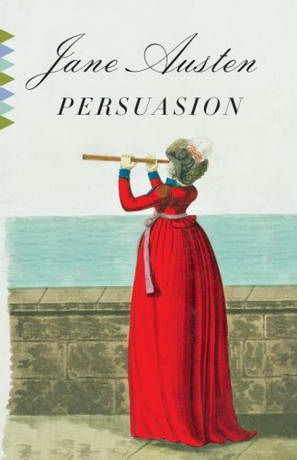 MARY ELLEN BERTOLINI
MARY ELLEN BERTOLINI
(Middlebury College)
“THE GRACE TO DESERVE: WEIGHING MERIT IN JANE AUSTEN’S PERSUASION“
Following Waterloo, rich naval officers vied with impoverished aristocrats for position and importance. Against this political drama, Jane Austen unfolds her story of Anne Elliot, who pines for Frederick Wentworth, the Naval Captain she rejected. Wentworth’s final words in the novel, “I must learn to brook being happier than I deserve” are no coincidence, for the idea of deserving, of earning one’s blessings, is at the very core of Persuasion, Austen’s last completed novel.
Read here on Mary Ellen’s blog, her comments on her talk to us last week.
Sunday, 1 March 2009
2:00 p.m.
Champlain College
Hauke Family Campus Center (375 Maple St.)
Burlington, VT
free and open to the public ~ light refreshments served


I’m almost tempted to come up north and join you! :>)
LikeLike
Pingback: Slices of Cake » Blog Archive » Time
Just a note on historical accuracy…. the story (Persuasion) starts and finishes BEFORE Waterloo, not before.
The PEACE referred to by the Admiral was 1814 after the Treaty of Fontainbleau and resulted in Napoleon’s exile to Elba. At the end of the book it is announced that he has escaped and the Hundred Days begin, which culminate in the battle of Waterloo (or Battle of Mont St. Jean idf you are french).
LikeLike
I must take the blame for this one, Bruce. Trying to be concise — and use terms people recognize quickly — the flyers advertising the lecture utilized the word WATERLOO. Prof. Bertolini’s original opening used the phrase ‘the peace that followed’:
“Jane Austen began writing, Persuasion, her last completed novel, at the very end of the Napoleonic War. During the peace that followed, rich naval officers vied with impoverished aristocrats for position and importance in Regency England.”
You obviously know the book – and its references to the Napoleonic Wars – well; to which part of the book do you refer when you say ‘it is announced that he has escaped’. I tried looking quickly through on online reference, but am obviously not putting in the correct search terms. This false peace fascinates me, as the first diary of Mary Gosling (whom I am researching) takes place during a family trip to Oxford during the 1814 celebrations of this ‘peace’!
LikeLike
Dear ‘Janeite’ Kelly,
Looking back at my post, I wish I had taken the trouble to spell check! At least two errors, including one in the first sentance.
Now I have a MAJOR confession. The comments were based on my knowledge of the first (1995) BBC movie of Persuasion. Now perhaps the adaptation for the screenplay added dialogue to clarify what was left a little vague in the book? Still one of my favourites. I will have to go back to the original myself!
LikeLike
Thanks for the info, Bruce. I think it is the subtlety with which Austen presents much information that keeps all us readers going back! Like Mozart – where you hear something every once in a while never before noticed, Austen planted ideas, thoughts, meanings that readers (this reader anyway) may miss time and again. For instance, read the post on Bishop’s University’s symposium, Robert Morrison’s talk: he was under the impression that EVERYONE noticed Lizzy telling Darcy that she had not known him A MONTH before she decided he was the last man on earth she would marry. But as he dug, he found that NO ONE commented on that time-reference. Even those in the audience had no clue: yet there it is in the novel (and it is bound up with Mr Wickham!).
One of these days I will have to go to the university library and check out if Chapman has written about the time period setting for this novel. You are undoubtedly right, that what Austen left implicit was made explicit for film.
LikeLike
I just read “PERSUASION”. I don’t recall the novel pointing out Napoleon Bonaparte’s escape from Elba in early 1815.
LikeLike